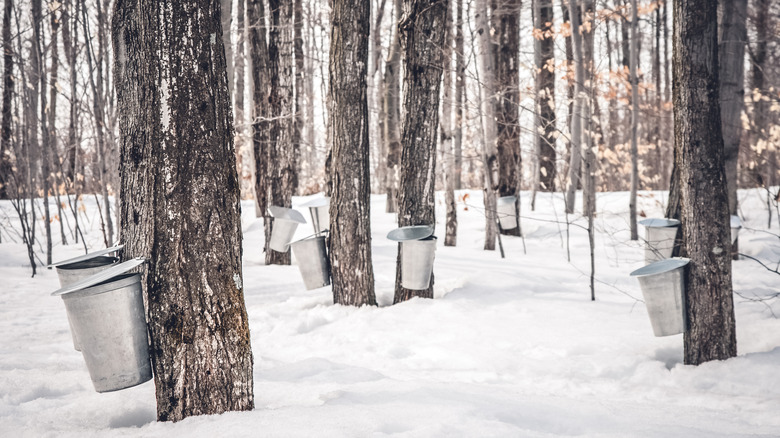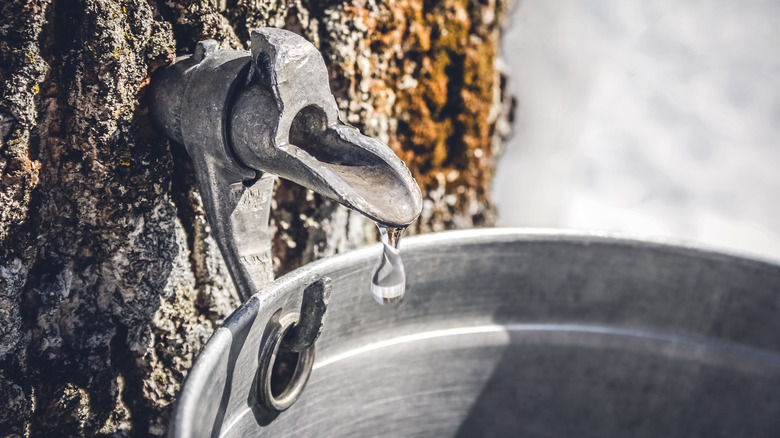This Year's Maple Syrup Harvest Is Worrying Producers. Here's Why
Maple syrup is the sweet side that takes breakfast to the next level. The sticky sauce is best enjoyed drizzled over a towering stack of flapjacks or poured into the cube-checked face of a buttery waffle.
A TikTok-approved Canadian snow treat even allows you to chow down on pure chilled maple syrup wrapped around a popsicle stick. And you might not have thought to use maple syrup in your beverages, snacks, and meat marinades, but it's an excellent way to sweeten something without simply adding a pinch of pure sugar.
Given the sauce's versatility, it is easy to understand why the 2020 maple syrup market in the U.S. was worth nearly $500 million. However, folks who frequently reach for the syrup bottle might consider being a touch more stingy with their syrup in the coming years. A sparse sap harvest seems inevitable, which is a reflection of a worrying trend.
Syrup season comes early for North American farmers
The reason for the impending syrup shortage can be better understood by examining the Breedons, a family of syrup producers who have spent the past few years struggling to adapt to an increasingly erratic harvest season. The culprit is climate change. Maple syrup is so expensive because of the arduous process that goes into making it. As the weather warms, sap frozen inside of maple trees thaws and begins to slow through the tree. Syrup producers tap into the trees to collect that sap and distill massive quantities of the watery liquid down into thick, delicious syrup. And climate change has caused the harvest season to start earlier.
This year, Breedon's Maple Syrup started tapping trees in February. This theoretically means a longer time to collect the sap, but it also serves as a harbinger for a potential collapse in the maple syrup supply. Another syrup farmer, Bri Hart, told NBC New York that in the absence of freezing temperatures, trees won't be able to form sap continually, which could eventually lead to a shorter harvest season.
The effects of climate change on syrup production aren't new. In 2021, Quebec Maple Syrup Producers was forced to dip into its syrup reserves and sold 50 million pounds from its emergency supply.And maple syrup isn't the only consumer good shaping up to be a victim of climate change. Global warming could cause a coffee shortage, too.

